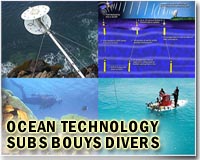 |
Helsinki (AFP) Feb 9, 2010 Russia's Prime Minister Vladimir Putin and other leaders from around the Baltic Sea hold a summit in Helsinki on Wednesday under growing pressure to clean up one of the world's most polluted seas. Over-fished, surrounded by dirty industry and uncared for, the brackish sea is so toxic that pregnant women should not to eat the fish that are caught in the Baltic, according to Greenpeace. The marine life is being decimated, researchers say. One hundred years ago there were about 100,000 grey seals in the Baltic but but by the 1980s the population had fallen to 2-3,000 because of hunting and pollution that made females infertile. Putin and his counterparts from Estonia, Denmark and Norway, the presidents of Latvia and Lithuania, and Sweden's King Carl XVI Gustaf will discuss how to save the sick sea at the meeting hosted by Finland's President Tarja Halonen, Prime Minister Matti Vanhanen and the Baltic Sea Action Group (BSAG). Environmentalists are disappointed that neither Germany nor Poland are sending a top leader to the summit, but they also insist that those who do attend must put into action already agreed plans. "We know exactly what needs to be done," Sampsa Vilhunen, head of Worldwide Fund for Nature (WWF) Finland's marine programme, told AFP. "Let's now start implementing what's already been agreed. After that, we can evaluate whether or not that's enough." Organisers of the Helsinki summit say a range of companies, foundations and individuals have already made more than 130 promises of action to save the Baltic. Businesses have promised innovations to recycle nutrients from waste-water and technology to improve communications between vessels and local authorities to enhance safety. Some 90 million people live around the Baltic Sea. Eutrophication -- the overconcentration of nutrients caused by sewage effluent and agricultural run-off carrying fertilizers into the sea -- over-fishing and the increasing marine traffic are the main threats to be tackled. The shallow, semi-enclosed sea takes far longer than many other large bodies of water to flush out harmful substances and this has increased the toxic concentrations in fish, according to the Greenpeace group. But there are also opportunities and sustainable industrial development could help protect the Baltic, said Mari Walls who heads the marine research centre at the Finnish Environment Institute (SYKE). "The Baltic Sea has a lot to offer when it comes to developing environmentally sustainable technology," she said, citing the potential of algea, a product of eutrophication, as a base for biodiesel. The European Union and the nine countries with a Baltic Sea coastline -- Russia, Finland, Sweden, Denmark, Estonia, Latvia, Lithuania, Poland and Germany -- already cooperate to protect the marine environment through the Helsinki Commission (HELCOM). But critics say the body's good intentions have been slow to translate into concrete measures, and its action plan, aimed at restoring the sea to a good state by 2021, is lagging. "There is a lack of real results. We haven't seen the action needed to meet those ambitions that have been presented within the Baltic Sea strategy," said Greenpeace ocean campaigner Jan Isakson. Environmentalists say countries need to set aside national agendas in favour of the best interests of the Baltic Sea. "What has been obvious over the years is that practically no country speaks with the voice of the Baltic Sea; they all speak with the voice of their own country and national interests," said WWF's Vilhunen. Russia is currently the chair of HELCOM. The next test of international commitment to the Baltic comes in May when it holds a ministerial meeting in Moscow.
Share This Article With Planet Earth
Related Links Water News - Science, Technology and Politics
 Europe's Baltic Sea: a vulnerable ecosystem
Europe's Baltic Sea: a vulnerable ecosystemHel Peninsula, Poland (AFP) Feb 8, 2010 With their heads bobbing out of holes in the winter ice, six grey seals are pioneering the re-population of their species along Poland's Baltic Sea coast. "We don't know all the reasons why seals vanished from Poland's Baltic coast," says Iwona Pawliczka, a biologist at Gdansk University's marine research station on Poland's Hel peninsula. "A century ago there were about 100,000 grey sea ... read more |
|
| The content herein, unless otherwise known to be public domain, are Copyright 1995-2010 - SpaceDaily. AFP and UPI Wire Stories are copyright Agence France-Presse and United Press International. ESA Portal Reports are copyright European Space Agency. All NASA sourced material is public domain. Additional copyrights may apply in whole or part to other bona fide parties. Advertising does not imply endorsement,agreement or approval of any opinions, statements or information provided by SpaceDaily on any Web page published or hosted by SpaceDaily. Privacy Statement |